Magnus 900 anniversary marked with Orkney pilgrim route
- Published
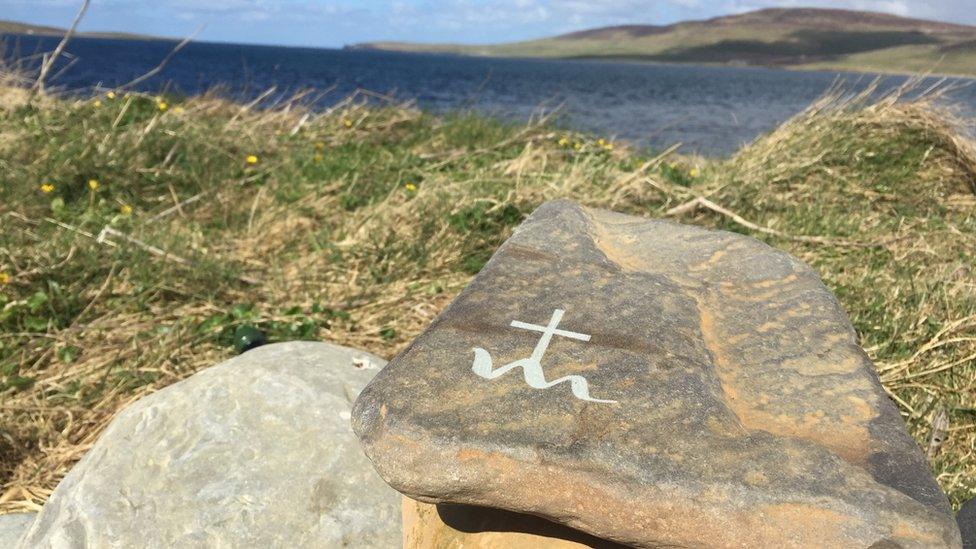
The route is marked with a symbol that combines a cross with waves
A new pilgrimage route has been officially opened in Orkney, to mark the 900th anniversary of the martyrdom of St Magnus.
It starts at the Broch of Gurness, and follows the route believed to have been taken by mourners carrying his coffin.
It was opened with a short ceremony of prayers and the anointing of a marker stone with oil.
More than 100 people walked the first four miles on Sunday, but the full route is 55 miles long.
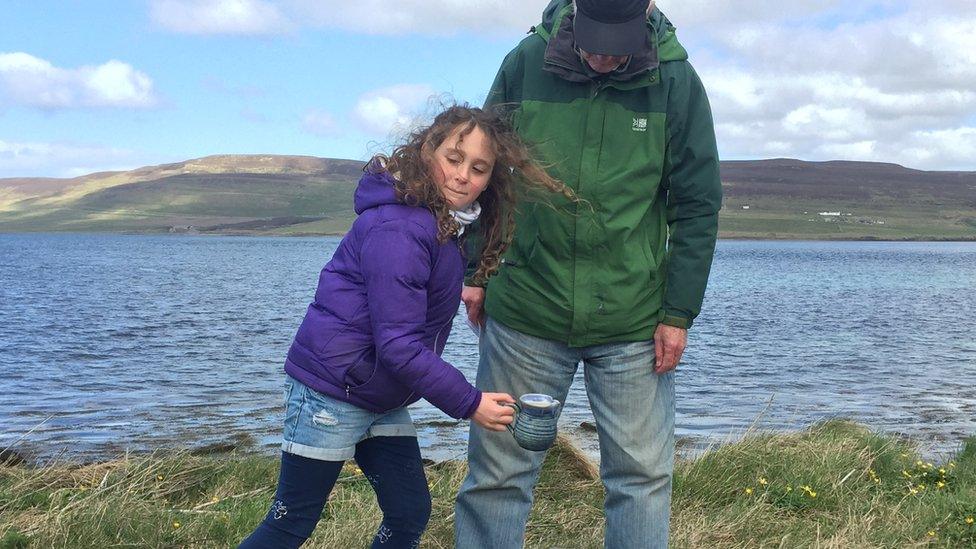
Dr Ron Ferguson anointed the stone, with help from children in the crowd
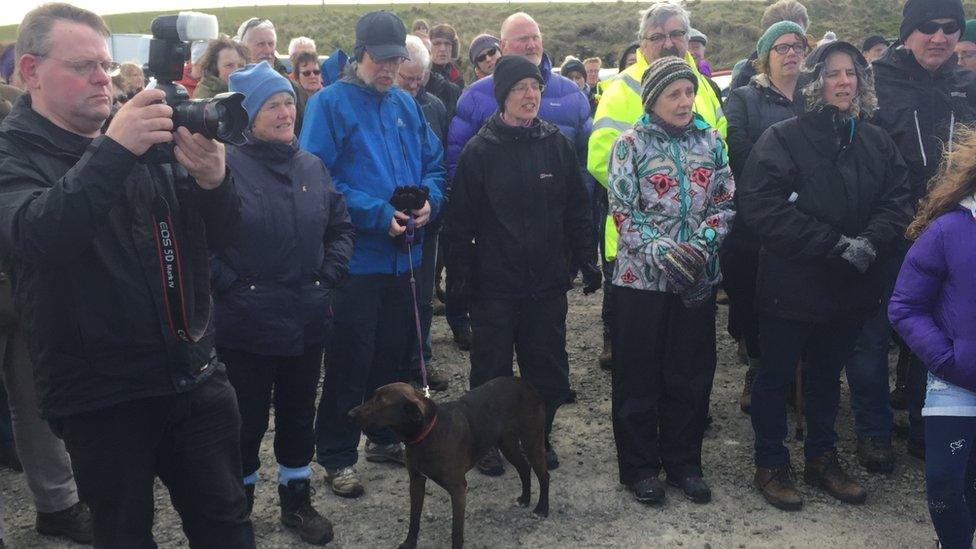
The opening ceremony was watched by about 175 people, and at least one dog
Dr Ron Ferguson, former minister at St Magnus Cathedral in Kirkwall, prayed "may every step along this way be a prayer, every breath a new found song", before many of the crowd set off to walk the first four miles of the new route.
The Way was devised by a small working group including the Rev David McNeish.
He told BBC Radio Orkney: "We got together about 18 months ago, to see how we could support and encourage pilgrimage in Orkney.
"Obviously thinking about the pilgrimage, the first person that springs to mind is Magnus, with his own story. And then the journey that his body, and his bones, took. But also the fact that people were coming to Orkney for hundreds of years after that, because of the cult of St Magnus.
"So it seemed like the obvious place to start was to think about St Magnus, and the possibility of a St Magnus way."
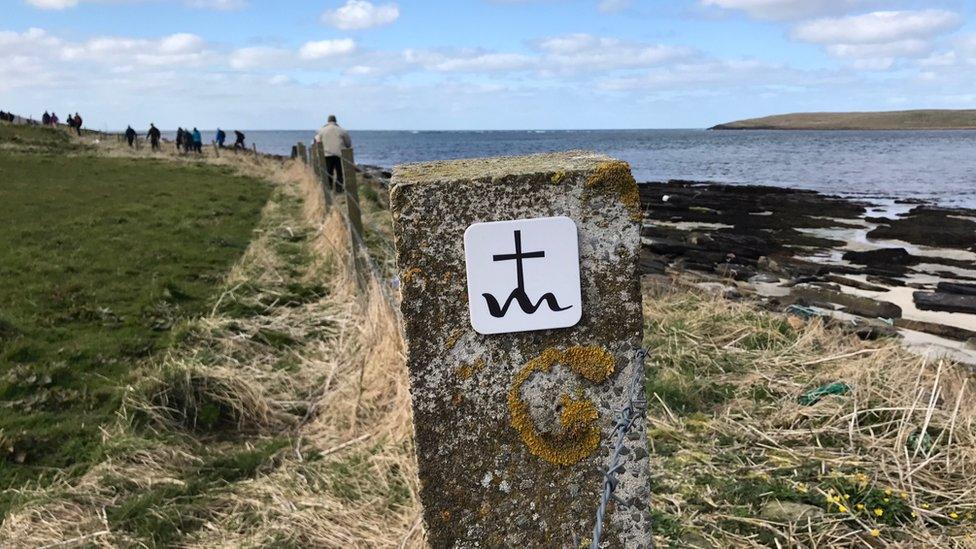
Walkers set off along the coast from Gurness towards Evie guided by waymarkers
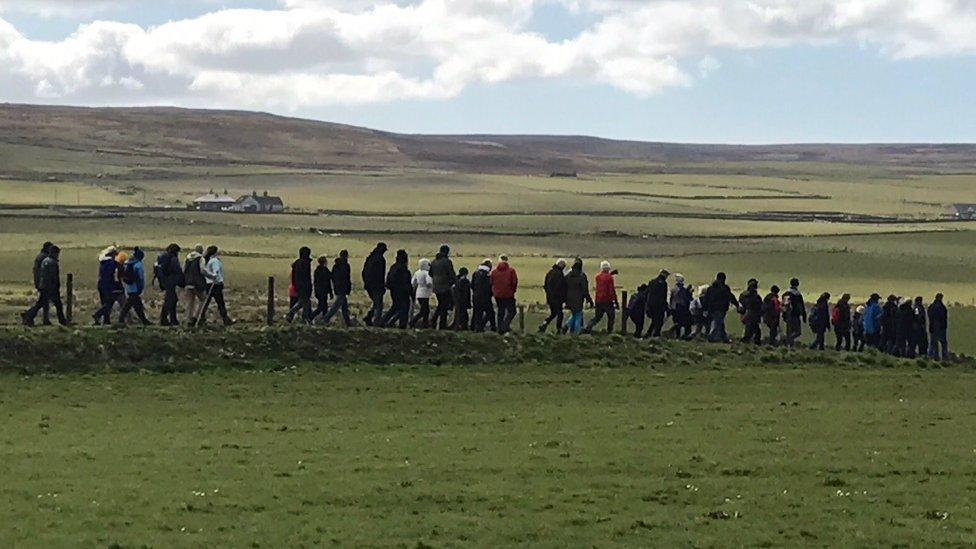
The route is thought to have been taken by mourners carrying Magnus's coffin for burial
Dr Sarah Jane Gibbon, who is an expert in the medieval church in Orkney, said: "We don't know if pilgrims walked this route. What we do know is that there are places in the landscape that are called mansie stones - or manse stones.
"The tradition is that these are the places that (Magnus's) coffin was rested as it was carried across the landscape. And so we've based the route loosely on following these manse stones through the landscape."
And Dr Ferguson said going on pilgrimage is a good thing to do, whether someone has religious faith or not.
"The exercise is good. Exposing your self to nature, and the glory of the world is re-energising for people. But also, if you do it with other people, there's great conviviality.
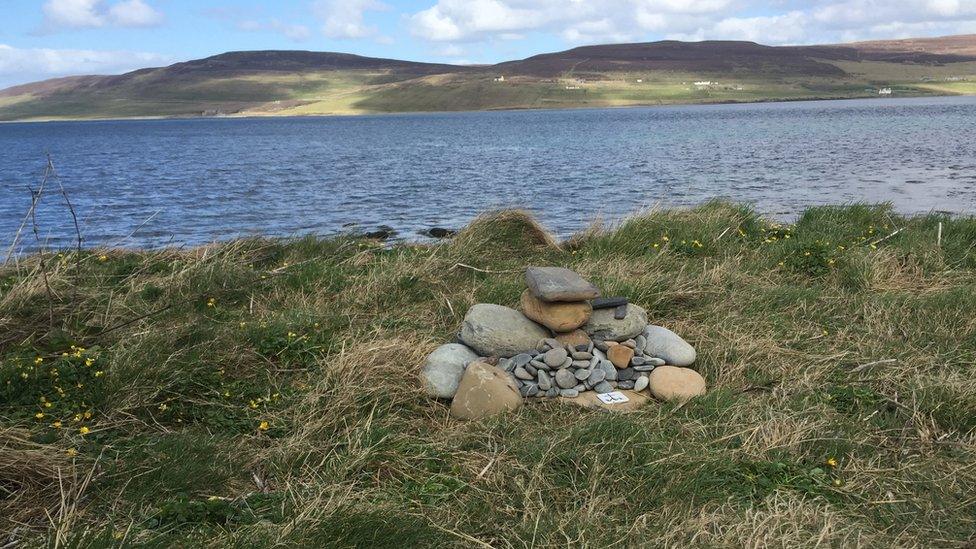
Pilgrims going on the walk were encouraged to take an anointed stone from the cairn, to carry with them.
"If you look at the Canterbury Tales, all of the stories there. Some of them are pretty bawdy. Not very religious. But there's also a deeper, more profound reason, for walking.
"Because all of us, in some way or another, are broken people, and in need of healing."